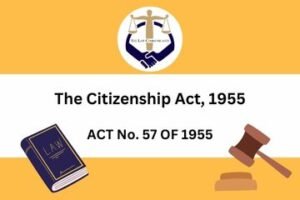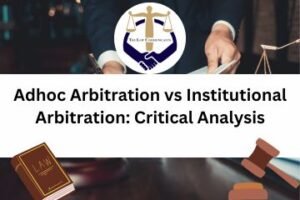On what grounds does a second appeal lie?
Section 100. Second appeal—
(1) Save as otherwise expressly provided in the body of this Code or by any other law for the time being in force, an appeal shall lie to the High Court from every decree passed in appeal by any Court subordinate to the High Court, if the High Court is satisfied that the case involves a substantial question of law.
(2) An appeal may lie under this section from an appellate decree passed ex parte.
(3) In an appeal under this section, the memorandum of appeal shall precisely state the substantial question of law involved in the appeal.
(4) Where the High Court is satisfied that a substantial question of law is involved in any case, it shall formulate that question.
(5) The appeal shall be heard on the question so formulated and the respondent shall, at the hearing of the appeal, be allowed to argue that the case does not involve such question :
Provided that nothing in this subsection shall be deemed to take away or abridge the power of the Court to hear, for reasons to be recorded, the appeal on any other substantial question of law, not formulated by it if it is satisfied that the case involves such question.
Section 100A – No further appeal in certain cases— Notwithstanding anything contained in any Letters Patent for any High Court or in any other instrument having the force of law or in any other law for the time being in force, where any appeal from an appellate decree or order is heard and decided by a single Judge of a High Court, no further appeal shall lie from the judgment, decision or order or such single Judge in such appeal or from any decree passed in such appeal.
Section 101 – Second appeal on no other grounds— No second appeal shall lie except on the ground mentioned in section 100.
Section 102 – No second appeal in certain suits— No second appeal shall lie in any suit of the nature cognizable by Courts of Small Causes when the amount or value of the subject matter of the original suit does not exceed three thousand rupees.
Section 103 – Power of High Court to determine issues of fact— In any second appeal, the High Court may, if the evidence on the record is sufficient, determine any issue necessary for the disposal of the appeal,—
(a) which has not been determined by the lower Appellate Court or both by the Court of the first instance and the lower Appellate Court, or
(b) which has been wrongly determined by such Court or Courts reason of a decision on such question of law as is referred to in section 100.
Substantial question of law –
The expression substantial question of law has not been defined anywhere in the code. However, SC interpreted it in the case of Sir Chuni Lal Mehta & Sons Ltd vs Century Spg & Mfg Co Ltd (AIR 1962 SC 1314) as follows –
“The proper test for determining whether a question of law raised in the case is substantial would, in our opinion, be whether it is of general public importance or whether it directly and substantially affects the rights of the parties and if so whether it is either an open question in the sense that it is not finally settled by this Court or by the Privy Council or by the Federal Court or is not free from difficulty or call for discussion of alternative views. If the question is settled by the highest court or the general principles to be applied in determining the question are well settled and there is a mere question of applying those principles or that the plea raised is palpably absurd the question would not be a substantial question of law.”
To be “substantial” a question of law must be debatable, not previously settled by law of the land or a binding precedent, and must have a material bearing on the decision of the case if answered either way, insofar as the rights of the parties before it is concerned. To be a question of law “involving in the case” there must be first a foundation for it laid in the pleadings and the question should emerge from the sustainable findings of fact arrived at by the court of facts and it must be necessary to decide that question of law for a just and proper decision of the case.
An entirely new point raised for the first time before the High Court is not a question involved in the case unless it goes to the root of the matter. It will, therefore, depend on the facts and circumstance of each case whether a question of law is a substantial one and involved in the case or not, the paramount overall consideration being the need for striking a judicious balance between the indispensable obligation to do justice at all stages and impelling necessity of avoiding prolongation in the life.
Keywords: Second Appeal, Second Appeal under the Code of Civil Procedure, 1908, Second Appeal Definition, Order Definition, and Judgment Definition, Second Appeal Under CPC, 1908.
Click here to read the Bare Act of Code of Civil Procedure, 1908




